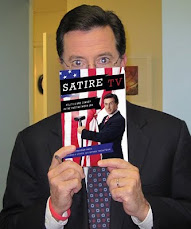I know I'm definitely sick of those teasers with Arnold as Bjorn Borg (or is it Luke Wilson in the Royal Tenenbaums?).
Here's a good column from Ian Crouch at The New Yorker on the logic of debuting Superbowl ads before the Superbowl. While this practices is helpful in my Advertising Criticism class, I agree it undermines the pleasures of TV's liveness, the annual summit of which is the Superbowl.
"It remains one of American culture’s great live events, and there is something cheering in the idea of being confined in a moment with millions of other viewers. As more companies circumvent the constraints of time with built-up preview campaigns and the early release of full ads, there is something to be said, from a viewing perspective, and, perhaps, even from a business one, for those that continue to value the dramatic possibilities of surprise."
Thursday, January 30, 2014
Thursday, January 23, 2014
How You See Movies - 1936
Persistence of vision explained (in a Chevrolet sponsored film from 1936).
Friday, January 17, 2014
Thoughts on Oscar Docs: The Act of Killing and Dirty Wars
The Act of Killing is an extraordinary film, and it’s even
better when paired with fellow Oscar-nominated doc, Dirty Wars. (Links to the Oscar Docs here.) While the
second film is a more typical doc in form and content, the two resonate
powerfully. Though only one explicitly deals with the US-lead war on terror,
both are about the stories we tell ourselves about what happens, how it
happens, who does it, and why.
The Act of Killing bears Errol Morris’ and Werner Herzog’s
names as executive producers, and I have no idea what direct roles they played
in this film’s production, but it is obviously influenced by those filmmakers.
The film takes reenactment to an entire new level, along the lines suggested by
Herzog’s work even more than Morris’s. One of my favorite docs is Little Dieter
Needs to Fly, which Herzog made and later adapted into the feature film Rescue
Dawn starring Christian Bale. In that doc, Herzog has Dieter Dengler reenact
what it was like to be run through the jungle at the wrong end of an AK-47
after being shot down in Vietnam (things got worse from there). At one point,
Dieter says something along the lines of “Okay, this is getting a little weird
now.” I’m paraphrasing, but in that film you see how reenacting while
incorporating the actual subjects into the dramatization isn’t just about
making the past visible. It can be a transformative act for the subject,
producing something new.
The Act of Killing is a large scale project of such reenactment,
but it turns things on their head by having the perpetrators of violence doing
the re-enacting. I apologize for the “head” comment, but there’s a lot of bad
things going on with heads in this film. The key subject of the film, Anwar
Congo, perpetrated many of those things in the sixties by garroting supposed
“communists” in Indonesia (he only killed 1000, we are told again and again).
But the movie is about how this reenacting, which he seems to think may
exorcise what emerging reservations he has about those acts, ultimately puts
him in the places (and heads) of those victims.
The filmmaker isn’t visible but we do hear his voice, and
Anwar and others talk to him and discuss their decisions about representing
themselves and what and how things happened. The Act of Killing is has an
incredible premise. But what is extraordinary is how Anwar is slowly revealed
to be coming apart, contrasted with how the many people around him seem to be
what keeps him together and keeps him from reflecting or taking responsibility
for his actions. One is left with the clear sense that it is important for the
public at large that Anwar not have regrets.
Which gets us to the larger story the film tells, as if it
needed to. The filmmaker, Joshua Oppenheimer, does quite a balancing act when
it comes to his film being about something that happened in Indonesia, and how
it is made sense of in Indonesia, and the bigger story about the west and what
role the US had in supporting the military regime that commissioned these
killings. This is a story about governments that commission paramilitary groups,
who commission gangsters, to do their dirty work. That callousness with which
that work was done pales when seen in comparison with the revelation that it is
still today (from what we see at least) still seen as justified and necessary.
The paramilitary Pancasila Youth (who played the key intermediary role between
the military government and the gangsters) are ever present in the film in
striking black and orange uniforms. I found this had an odd effect of
constantly marking them as exotic or other.
What goes unsaid is the extent to which their acts in the
sixties were another proxy US/Soviet war. I actually was glad that that angle
wasn’t pressed. The politics of this film are observational, even if its mode
is more participatory and performative. As I said to start, this is a film that
obviously resonates with activities going on all over the world. The Act of
Killing examines what has happened in the past, and how those acts are
processed by the people committing them. Those killings were committed up-close,
and ultimately at least one of the killers can’t escape the space of those
killings.
The officially sanctioned killing in Dirty Wars is supposed
to be much more sanitized, committed surgically by drone or elite strike force.
(Recent stories about drone pilots with PTSD would suggest otherwise.) The film
is a more typical documentary approach, following Jeremy Scahill, a heroic
journalist (I don’t mean that to be insulting, but that’s very much the mode—a
brooding, eyes-cast-down turn on 60
minutes. Check out the poster. Uhg.) Cahill attempts to report the story on the ground of the effects
of US drone strikes and attacks on terrorists and insurgents vs. the official
versions and attempts to suppress such reports. Dirty Wars is, essentially, the
updated report on how “acts of killing” of are now committed in the name of the
war on terror. Appropriately, it focuses more on reportage, but the
similarities between the mechanics of killing in both films are right on the
surface. That is, war lords in Somalia play the same role as the gangsters and
paramilitary in Indonesia. US policy is central. This isn’t someone else’s bad
behavior.
The ideology that enabled the killing in 1960s Indonesia and
continues to justify and obscure it today is central to the individual story
told by and told of Anwar Congo. In a week when my university is
celebrating officially being designated a center for “unmanned flight”
research, this documentary is necessary context. There’s a line in Dirty Wars
where a source describes the Joint Special Operatives Command (JSOC), having
come to prominence and publicly celebrated after the successful
killing of Bin Laden, as now being a “hammer looking for a nail to hit.” These
two documentaries are powerful reminders that the stories we tell about what is
happening in the world, what we are told by those in authority we need to do to
change that world, and how we choose to imagine those things working out, are ever-present
stories we can’t stop examining.
Because, you know, it's not good to flail around with hammers.
Friday, January 10, 2014
Mystery of Netflix Genres Revealed (Except Raymond Burr)
How Netflix Reverse Engineered Hollywood is absolutely essential reading on Netflix from The Atlantic on how it generates your recommendations, and genre recommendations in particular. Wedding this research process to its original productions is what will make Netflix such an interesting producer of content and potent force.
Subscribe to:
Posts (Atom)











